 Chapter 9 – The Harvey Way
Chapter 9 – The Harvey Way
Her feet were feather-light, as Sophia sped down the stairway to the street, the load from her shoulders similarly light. Exuberant with joy and relief, she felt as if she should dance along the sidewalk, sing and shout. She was not tired, she was not a desperate and near to penniless fugitive. She had a pass for travel without charge on the next train … to Newton, which Mr. Benjamin had explained – with some amusement – was some six or seven hours journey farther west. She had just missed the most recent train west, and had some hours wait for the next. Her feet slowed … yes; there was one thing she ought to do, now that she was truly in the west. If she was a woman inclined to making careless, symbolic gestures, she might have dropped the gold Armitage engagement ring into the Missouri River, but the Brewers – and also the Teagues – were not given to indulge in such wastefulness.
The Union Depot in Kansas City seemed to be at the core of a district very like old North Town in Boston, which was a pity in Sophia’s eyes, for it was a magnificent building. It took her no little time, or distance from the ornamented red-brick façade and towers, to find a pawnbroker and get a hundred dollars for the gold, diamond, and pearl ring. She might have bargained for better, in accordance with the advice of Mendelson the Jew, but in truth she cared little enough, now that she was assured of employment by Harvey contract, and truly in the west … although so far, it did seem to be too much on the respectable side to be considered wild. She walked away from the pawnbroker’s establishment, feeling an odd sense of being unburdened. The last significant physical link to her old life was cut and she was free … or mostly free. She swung the carpet-bag as if it were a light thing. The railroad pass and the vouchers in her reticule crackled; the stiff paper they were written on a talisman and an assurance.
She found the proper platform for the next train, after assuring herself of the correct time. It was early yet, only mid-morning. There was only one other passenger waiting, a Junoesque young woman about her own age, in a plain dark traveling dress and jacket. She was a striking figure, with white-blond braids pinned in a coronet around her head, underneath the brim of her hat. She also had a small trunk at her feet. Sophia wondered if she were also traveling to Newton – just as the young woman glanced in her direction and said,
“’ello – are you also for Newton? The train does not leave for another hour and a half. So Mr. Harvey told me.” The young woman had a faint, but pleasing accent; foreign-born, but fluent enough in English. Sophia rapidly made connections, from overheard mention.
“Are you Miss Nyland – Yes, I am also bound for Newton … to work in Mr. Harvey’s establishment. I am Sophie Teague– from Boston. I am an orphan, with no living family.”
“Oh!” the woman replied, instant sympathy in her face, and wide blue eyes. “How sad for you, Sophie! I am Laura Nyland, from Minnesota … and I have six brothers and five sisters, all older. My old papa; he cried when I said I would answer Mr. Harvey’s newspaper thing. But he gave me his blessing … I did not want to work on the farm any longer. You have not worked on a farm, Sophia? A very fine farm, but … oh, the muck! And the milking of cows, the laundry and the cooking … eh! To work in a fine restaurant! I like! And save for a dowry! I want to be married, some day – but to have a dowry. My papa could not afford a dowry for any past my third sister Kristin. My brothers, they find their own way – so why not I?”
“Indeed,” Sophia agreed, and settled onto the bench beside Laura Nyland. In the space of time spent waiting for the train and in spite of the considerable differences between them, she and Laura became fast friends, not least because Laura possessed a sharp eye and an even sharper wit … and a robust confidence in expressing it, which convulsed Sophia with laughter many times while they waited for the train, and during the hours to Newton. Laura had also been presented with a selection of sheets of paper, all printed in different typefaces, and not a few written out by hand.
“They want everything to be just so,” Laura pronounced, as they read them together, the fair head and the sandy-haired one bent together, as the midday train to Newton and points farther west rolled through Kansas. “There is a rule for everything.”
“But it is logical,” Sophia agreed. “This … it is nothing more than setting a proper table for a formal dinner party … haven’t you ever done such a thing, Laura?”
“On the farm!” Laura hooted with laughter. “With my brothers and the hired men hungry from a day of work? As if the forks and knives would even rest on the table next to the plate! And what is this … about cups and saucers?”
“A signaling code,” Sophia had already gone to the next page. “For what the guest has ordered to drink, so that it may be provided within seconds.”
“It is required to be efficient,” Laura nodded. “For the train stops for half an hour exactly for water and coal. In that time, they must order their meal, it must be served promptly and they must eat …”
“Did they say anything about where we shall live?” Sophia asked, regretting that she had either not pressed Mr. Benjamin for this intelligence, or if he had provided it, she did not recall.
“Above the restaurant,” Laura answered. “All the ladies live in rooms … two sharing. This is provided, as are all of our meals. But they are very strict with us. We must be home before a curfew at 11:00 every night, and if a gentleman wishes to pay court, he must ask permission, first. As if we were living with our very watchful papa and mama – but on one day a week, we are free to do what we wish. Is very good, Sophie – much better than the farm. And seventeen dollars a month! My papa paid the hired men only two dollars a month; my brother Sven is a carpenter in town, and he earns twenty dollars a month, when there is building in the summer. We will be earning almost as much as a man with a skilled trade, more than a woman teaching school! Think on that, Sophie!”
“We will have to earn it first,” Sophia warned, somberly. “And prove our worth in the first month.”
“Pooh! It is only work! I am not afraid of work!” Laura exclaimed; her confidence in herself was an infectious tonic. “Kansas now … the western territory – I do not know of this place, Sophie. Do you?”
Silently, they looked out of the train window, at the endless waves of grassland stretching as far as the eye could see; a sea of grass, with a faultlessly blue sky arching over it, an endless dome, unmarred by a single cloud. They had long left the river behind, and it seemed a long way between those small towns with names which suggested high civic hopes – Osage City, Emphoria, Strong City … each a tiny island in the ocean of grasslands.
“It used to be called the Great American Desert, in the books of geography in my grandfather’s house,” Sophia said at last. “There was nothing but herds of buffalo, and wild Indians, and it was perilous beyond belief to venture into it, even on the established trail … but now it is becoming settled. The soil is very rich, they say.”
“No trees to clear away!” Laura giggled. For the first time since Lucius Armitage had fumbled with his hat and his calling card in the parlor of the Brewer house, all those weeks ago, Sophia felt a return to her usual good spirits. She was in the west, which was sufficiently far enough away from Boston, on the verge of an adventure, and had a place and purpose to go.
They reached Newton as dusk fell, sweeping down on the prairie like the wings of a vast dark bird. Stars had begun to spangle the night sky, as cold, pale and distant as the lanterns which lit the platform and the station were warm, golden and close. Sophia and Laura stepped down from the train.
“Where are we supposed to go?” Sophia asked. “Was there someone we should speak to? I suppose that we can ask for them.”
The other passengers alighting at Newton seemed to be making in a group toward the nearest doorway; a double door with large glass panes in the center of each. The doors allowed hints of the activity within to spill out onto the platform, and Laura sniffed appreciatively.
“Good food cooking!” she exclaimed. “This must be Mr. Harvey’s place.”
“I suppose we should go inside,” Sophia ventured, but before they could follow after the other passengers, a young woman emerged from between the doors – a young woman clad in a black dress with a narrow white collar and a starched white bibbed apron.
“Miss Teague and Miss Brewer?” she asked, with a smile. “Welcome to the Newton Harvey House – I am Miss Maitland – Jenny for short. Mr. Benjamin sent me a telegram this morning, telling me to expect you. You must be tired … and hungry, too. Come inside – but this will be the last time you will ever sit down when a train stops here.” Jenny Maitland added with a twinkle in her eye. “May as well eat first, and have some notion of what to expect – then I will show you upstairs when the rush is over.”
Sophia gasped involuntarily, on beholding the dining room; never in the world would she have expected such splendor in such a place as this – out beyond the frontier of the Missouri River; spotless white table linen, silverware that shone as splendidly as if it had just come from the hands of the silversmith, monogrammed china, all lade out with superhuman precision on each table. The room was presided over by a pair of enormous silver urns on a table of their own – a table also dressed with a faultlessly white cloth. Jenny showed them to a table in the farthest corner, saying,
“What would like to drink?”
“Milk for me,” replied Laura, and Sophia ventured,
“Tea – orange pekoe, if you …”
“Of course,” Jenny twinkled at them again, arranging one cup off the saucer, and the other – with the handle pointed in a specific direction. “You both look so hungry – let me bring you that which we have done the best with, today … and take your time in savoring it, for at least you do not have to get onto the train again in twenty-eight minutes.”
She swirled away, her skirts and apron rustling, to be replaced in seconds with another girl in a black dress and starched pinafore apron, bearing a tray laden with carafes. Milk for Laura, orange pekoe tea for Sophia, appeared as if by magic from the carafes – the girl grinned at them both and whispered,
“I’m Emily Adams – you must be the new girls!” She also swirled away, a black-and-white clad sprite in constant motion, before either of them could reply.
“It’s … marvelous,” Sophia ventured. “It’s like a dance – like a ballet. Look at them, Laura!”
The lamp-lit dining room presented a picture of constant purposeful motion – the dozen or so women in nun-like black dresses and white pinafores moving between the tables. Not a minute or two had passed since the passengers had come from the station platform; now the women in black and white danced between the tables bearing plates – of soup, and salads, then bread and savory entrees, emerging from a farther door.
For once, Laura seemed to have lost some of her previous easy assurance.
“Oh, Sophie … do you suppose we will ever learn this?”
“We’d better do so,” Sophia pointed out. “If we want to earn that generous living, and you your dowry. Besides – they all have. Every one of these girls had to learn the system, and so can we.”
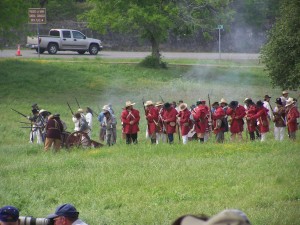







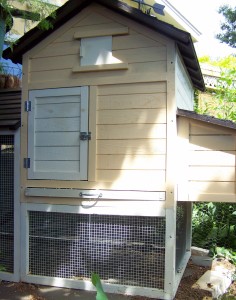
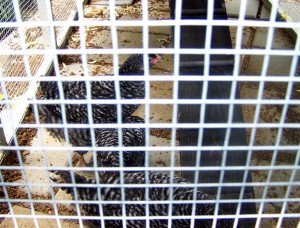
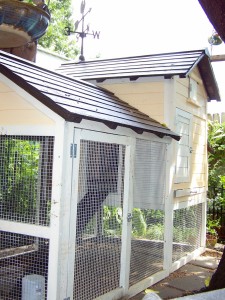
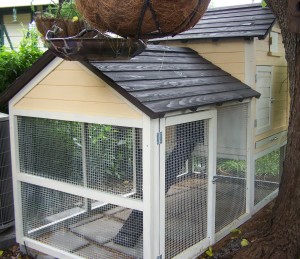

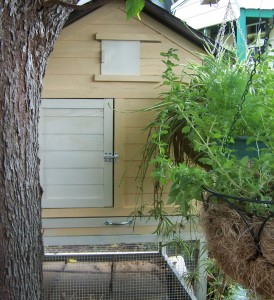
Recent Comments